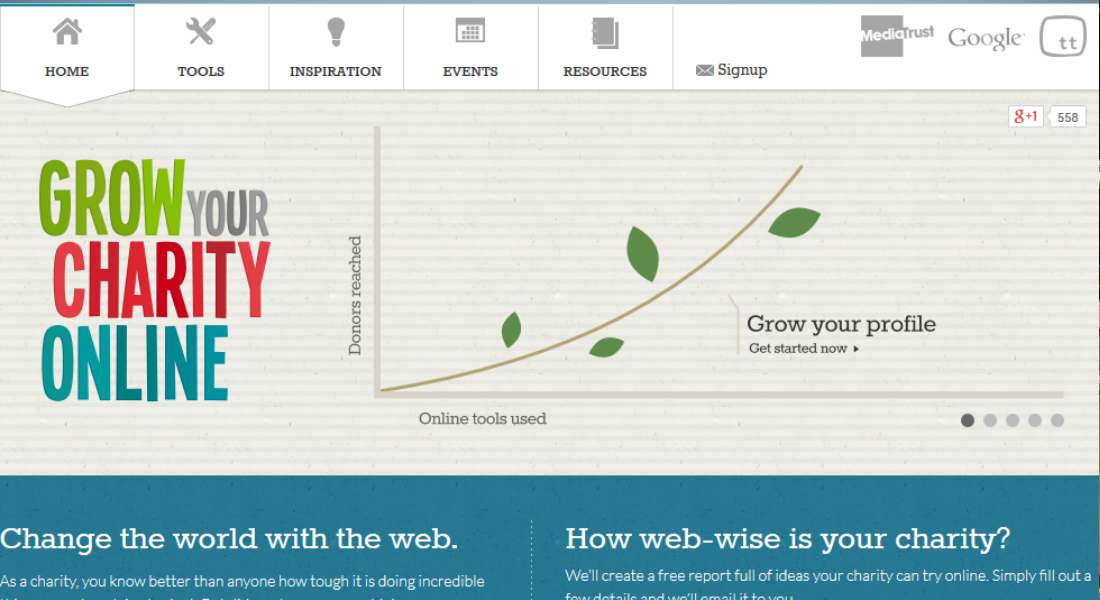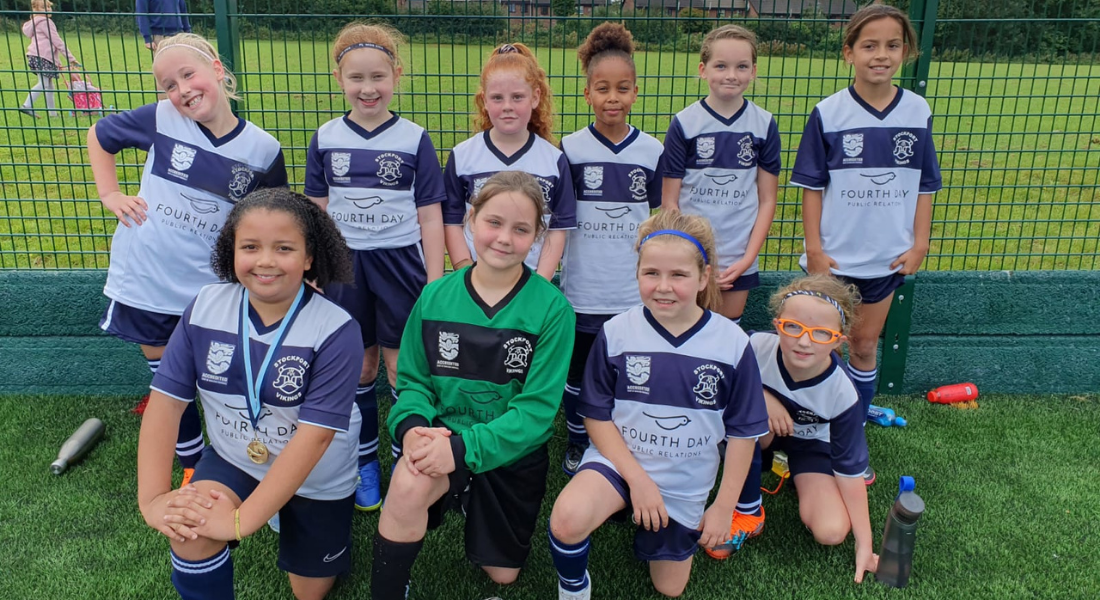Last week’s Grow Your Charity Online event was a great success for Google, Charity Technology Trust (CTT) and the Media Trust’s initiative to help UK charities to benefit from being online. Held at the boutique Great St John Street hotel in Manchester (just across from the Coronation Street set), there was a full house with more than 40 attendees representing charities from Manchester and the North West area.
Participants were treated to an animated presentation from Matt Haworth from Reason Digital, on behalf of the Media Trust addressing social media, what it is, how to use it – and how not to! Matt focused on key tips, including:
- Don’t be afraid of social media – use it! There are 10 million twitter users in the UK.
- Social media is meant to be social. Make sure your Tweets and Facebook updates are conversational and engaging.
- Avoid pictures of people holding giant cheques – use images and anecdotes to show who your charity is benefitting – and how donations support this good work.
- Be remarkable – use social media to answer the question: what is the most interesting/useful thing that your charity does.
- Inspire action, not just ‘likes’.
- Influence the influential. Make sure you’re engaging and following the people who are most active on social media. They can help extend your charity’s reach!
CTT’s head of eCommunications, Elizabeth Carter followed Matt with a presentation on effective email marketing. She kicked off with the reminder that email is not dead. With 3.7 billion (and growing) active email accounts in the UK, email is not being replaced by social media – the two go hand in hand!
Elizabeth‘s interactive session provided practical advice on the mechanics of creating a good marketing email, such as:
- Don’t make emails too image heavy – they may get stuck in spam filters.
- Include an attention-grabbing subject line to encourage people to open your emails.
- Personalise emails and use individual landing pages. Engaged supporters are 7 times more likely to donate!
- Include social sharing icons on email to link to Twitter and Facebook campaigns.
- Make sure you optimise emails for all devices, including smartphones and tablets.
She also tackled the controversial topic of whether or not to use shocking images and messages when marketing a charity. The room was divided over what was appropriate and what was merely exploitative. The overarching recommendation was to stay true to your charity’s brand in all communications. Court controversy if this is appropriate to your cause and organisation, but be careful not to alienate your loyal supporters in a bid to fundraise. Create campaigns that give people a reason to pause and think – and don’t be afraid to make people laugh!
The hotel’s rooftop terrace was abuzz with the discussions and networking that followed the presentations. Charities discussed issues, projects and ideas with each other over lunch and many took advantage of the Googlers in attendance to ask specific questions about the mechanics of online engagement. Attendees left the half day session having made valuable connections and with practical information many planned to put into place immediately – a definite measure of success!
This article first appeared in Charity Digital News
Share this:





